Australian bushfires: The canary building the coal mine
The world's biggest exporter of coal is engulfed in flames and Aussies are taking to the streets demanding action. Could this summer be the turning point for a notorious climate offender?
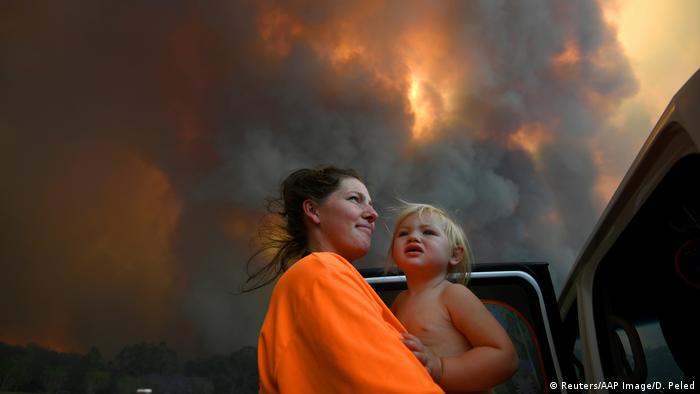
As 2019 drew to a close, there were 12 houses on Jack Egan's
street in North Rosedale in New South Wales. Today, only four remain.
Egan, who has Rural Fire Service training, stayed to defend his home even after his neighbors heeded official warnings and evacuated. But once the "firestorm" rolled in from two directions on December 31st, it "went up like a torch," he hold DW.
Read more: Coal stokes Aussie bushfire rage
Jack says fire-ravaged streets like his look the same across the country: "There's the rubble of the houses, the corrugated iron from the roof collapsed on top of it, all the timber's been incinerated, the bush around is completely denuded and black."
As the Australian bushfires continue to savage towns and ecosystems, take human lives and kill billions of animals, environmentalists say one of the world's worst climate offenders has become a grave example of its impacts.
"There's a white hot anger across our community," Egan, a support worker for the elderly, says. "Not so much about the drought and fire, but the lack of climate change action across decades."
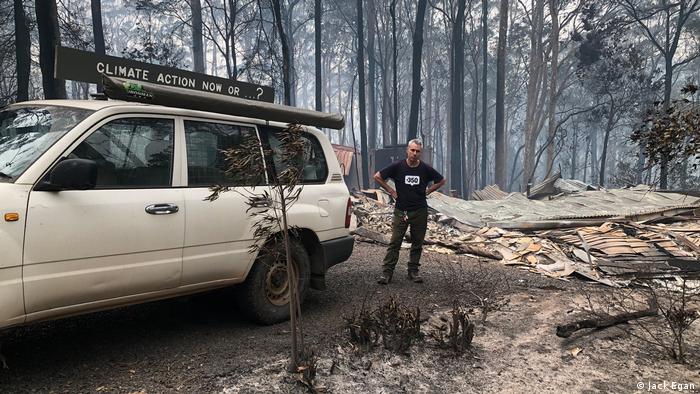
Jack Egan in front of the post-fire wreckage of his home on New Year's Day
Climate vs. coal
On Friday, that anger spilled onto city streets from Sydney to Canberra, Brisbane, Adelaide, Hobart and Perth, with thousands of protestors demanding emissions cuts and an end to multi-billion dollar fossil fuel subsidies.
Australia is the world's biggest coal exporter. Last year, Prime Minister Scott Morrison's government approved Adani's controversial Carmichael mine in Queensland's Galilee Basin, set to be one of the world's biggest coal mines. Another six coal mines in the area are awaiting approval.
The 2020 Climate Change Performance Index ranked Australia last out of the 57 countries for its climate policy by, describing Morrison's conservative government as a "regressive force."
Back in 2008, the Garnaut Climate Change Report predicted that without action on climate change, Australia would face earlier and more intense fire seasons by 2020.
While Morrison has been reluctant to admit a link between climate change and the current bushfires, for many that prediction appears to have been horribly realized. With two months of summer still to go in the southern hemisphere, authorities have already rated this fire season Australia's worst on record.
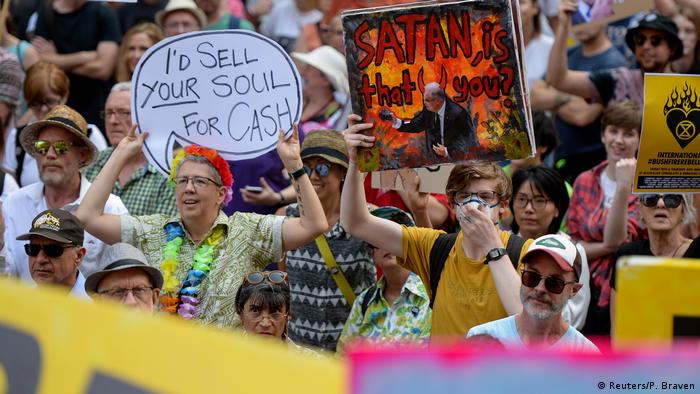
This is the first time bushfires have sparked significant nationwide
climate protests in Australia, but it remains to be seen if public anger will spur action
Bhiamie Williamson, a researcher in indigenous governance and identity at the Australian National University in Canberra, points out that Australia is no stranger to fires. Whether the current protests are a turning point remains to be seen.
"Australia is a country that's almost becoming accustomed to major natural disasters, and as yet none of them have galvanized people to action," Williamson said.
Nature and culture up in flames
One of the country's previous worst-ever natural disasters, the Black Saturday bushfires in 2009, killed almost 200 people and burned through 450,000 hectares (1.1 million acres) following a severe heatwave.
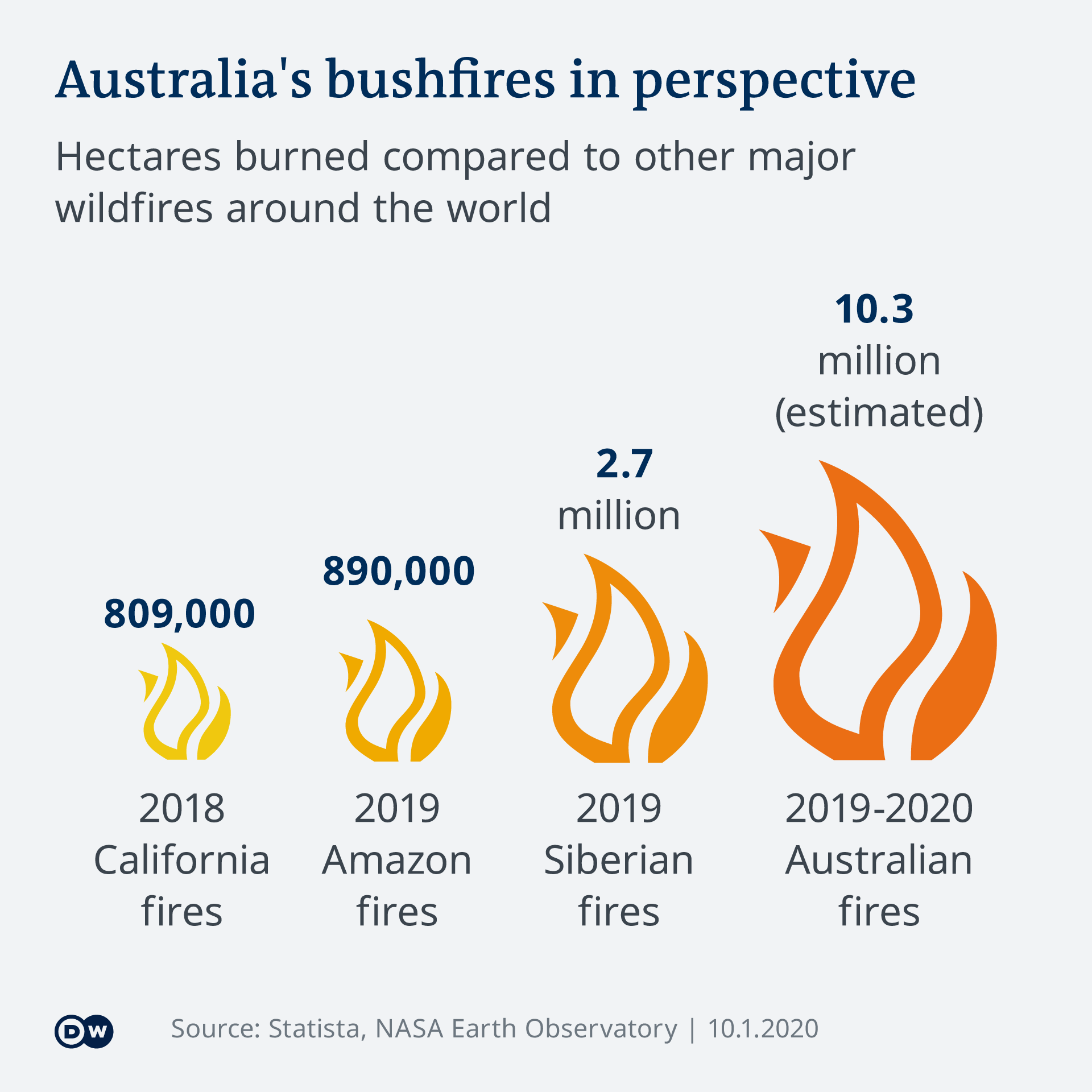
This season has already seen 10 million hectares (25 million acres) ablaze. While it hasn't taken as many human lives as the fires a decade ago (the current death toll is 27), ecologists estimate more than 1 billion animals have died.
Several species may now face extinction, and large swathes of rainforest and coastal ecosystems normally considered too wet to burn will take decades to regenerate — even if they are spared future fires.
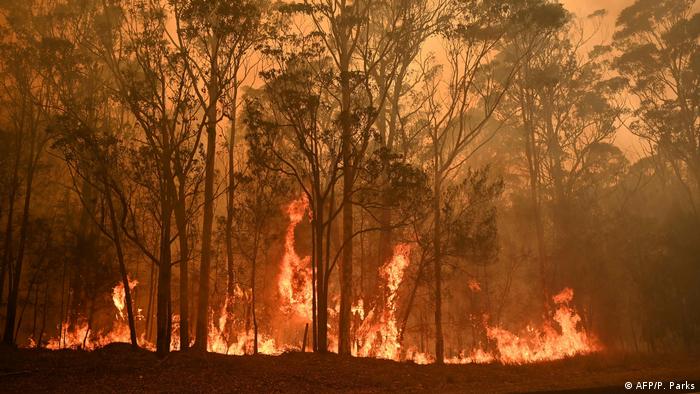
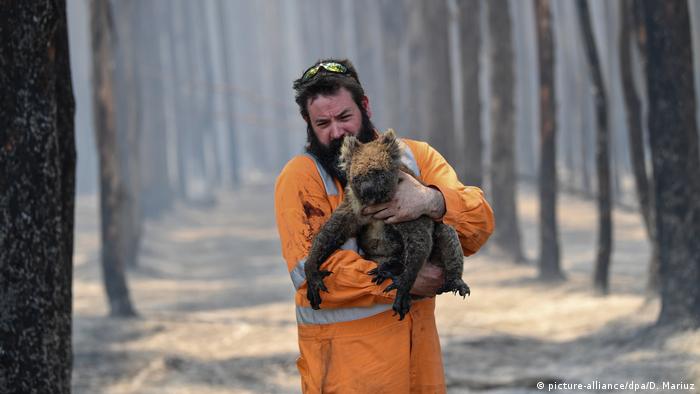
The fires have left species like the koala without enough habitat to
rebuild decimated populations
That's not to mention the enormous loss experienced by First Nations people, who have witnessed the destruction of ancient, sacred trees and sacred sites, and face the possible extinction of ancestral and totemic plants and animals that are deeply entwined with their cultural identity.
Williamson, who is a member of the indigenous Euahlayi people, describes this as a "new trauma" for Aboriginal people, layered on top of the trauma of colonization and the ongoing "wilful ignoring of Indigenous people's land-management perspectives."
Crippling drought and lethal heat
The current bushfires follow unprecedented heat and drought. Australia had below average rainfall every month last year, and New South Wales — the hardest hit state on Australia's east coast — is in its 38th consecutive month of above average temperatures.
Polls suggest that most Australians see climate change as an urgent threat and want tougher government action. But Williamson says "understanding that and prioritizing it are two different things."
Right now, Williamson says questions "like 'how expensive is your electricity bill?' and 'what's the cost of living?' overwhelmingly define people's voting behaviors" — not climate policy.

A protestor against the Adani coal mine makes a stark statement about
Australia's political priorities
Prime Minister Morrison, who at one point in the fire season left for a holiday in Hawaii, told Sydney radio 2GB on Friday, "We don't want job-destroying, economy-destroying, economy-wrecking targets and goals."
It's not just the current government that has lagged on climate policy. "There hasn't been any government action for about three decades," Egan said. "It gets harder, more expensive and more damaging the longer we wait."
Both he and Williamson blame successive conservative governments for failing to heed warnings over the years. The 2014 adiminstration even scrapped a carbon tax put in place by the previous government.
A warning to the world
Standing in the wreckage of the home he and his partner Cath Bowdler only recently finished renovating, Egan describes his country as "the canary in the burning coal mine." He hopes the rest of the world is watching.
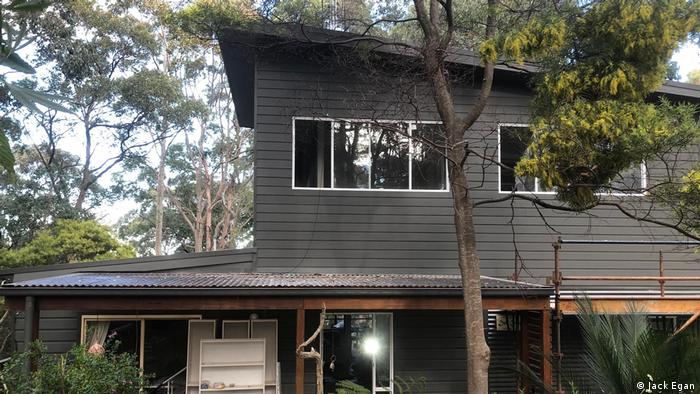
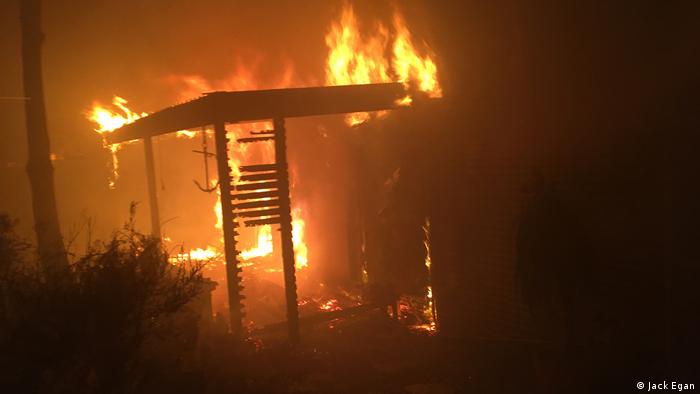
Jack Egan's newly renovated home before the fire and on New Year's Eve
Read more: My Australian paradise lost
"Look what has happened to us," he says. "We're the early victims here, but this will happen to you. We don't want it to happen to you, but the only way we can prevent it is for us to cooperate on effective climate action policies."
"It's time to get out of the coal mine," Egan warns.
Coal stokes Aussie bushfire rage
Protests grow against Australia’s handling of the bushfire crisis. Leaders refuse to reverse their climate policies. DW’s Ben Fajzullin says politicians are blinded — not by a spreading red haze, but mining fortunes.

Coal has fueled close to 3 decades of continuous economic growth in Australia. The globe's biggest exporter of the dirty black stuff has powered China's meteoric rise. That's created a mammoth amount of climate destroying emissions. It seems like payback, with Australia now enduring record temperatures, drought and fires.
The fires, in turn, are generating even more carbon dioxide — 370 million tons, according to the European Union's Copernicus Atmosphere Monitoring Service. That's two thirds of Australia's annual man-made emissions, but not enough for politicians to change their tune, even with Canberra choking in smoke. Prime Minister Scott Morrison rejected calls for "reckless" and "job-destroying" cuts to coal.
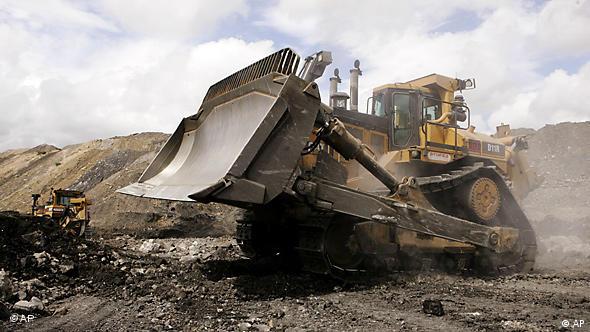
Killing off climate action
The industry is a big employer and has huge political sway. Former prime minister Kevin Rudd told The Guardian mining multinationals — Glencore, Rio Tinto and BHP — "ran sophisticated operations" to kill off climate action in Australia (toppling PMs, including Rudd) through a vast lobbying network and the Murdoch media.
The rest of the world is largely turning its back on fossil fuels. Climate protesters in Australia want Morrison to follow suit or step down (he famously presented parliament with a lump of coal as finance minister). They also say he's bungled the bushfire crisis, by playing down one of Australia's worst natural disasters.

'His policies are a joke'
He should tread carefully, if public opinion shifts. Prime ministers come and go. Australia has had 7 in the last decade. Indigenous Australian entrepreneur Charada Hawley told me that Scott Morrison is an "awful leader."
"Not only is he a climate change denier, his policies are a joke and he is not prioritizing Australia's future or its people," she said.
The co-founder of a line of sustainable clothing, Jackfruit the label, said she's consistently shocked by Australia's choices. "Australia is still betting on coal, instead of wind and solar, because it's cheap. It's not cheap though, if you look at the true cost we're paying!"
"Some forecasts show that most of our land won't be habitable in the years to come, and yet our government still isn't convinced that dramatic action needs to be taken immediately," said Hawley. Some affected areas already look like moonscapes.
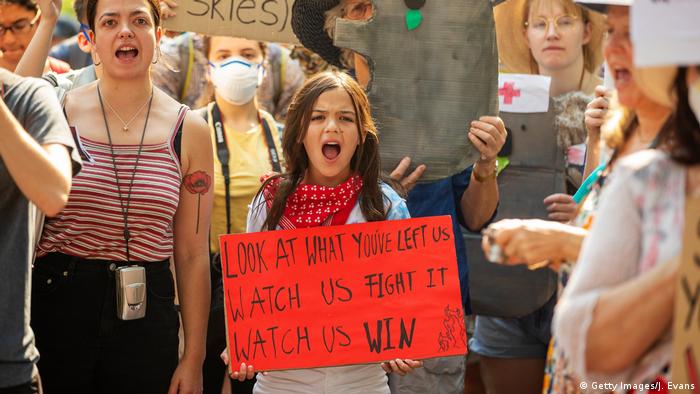
The federal government has tried to ban climate protests. But more
and more Australians are not being deterred
1% of GDP at stake
The head of Australian insurer iag, Peter Harmer, said there is an "urgent need for Australia to prepare for and adapt to climate change." Some economists say the bushfires could wipe 1% off gross domestic product (GDP) growth.
Moody's Analytics said the damage is likely to exceed the AUS$4.4 billion ($3.02 billion, €2.7 billion) cost of the 2009 Black Saturday fires. Moody's economist Katrina Ell said these fires would cripple Australia's consumer confidence and damage the economy through increased air pollution and harm to farming and tourism.
'Climate change in action'
Tourism accounts for 3% of GDP. Many come to see Australia's iconic kangaroos and koalas. However experts say a billion animals have perished.
"It's going to be a struggle to find a koala," said wildlife rescuer Al Mucci, who works for theme park Dreamworld. Still he encourages tourists to support the devastated communities and witness what he called "climate change in action."
He described the conditions on the front line as catastrophic. "Exploding canopies of eucalypt trees, like bombs going off. The fires are producing their own climatic conditions to propagate themselves even stronger and more devastating. It's like they are a living thing. It's horrifying," Mucci admitted to me.

The bushfires have claimed relatively few human lives, but the cost to
wildlife is unfathomable
Koalas screaming for help
So is his job, trying to save animals. "Koalas that are screaming for help, but at the same time trying to bite you and scratch out your eyes. Birds with singed feathers, that can't fly, running around getting burnt feet. Snakes flipping around in agony with half burnt bodies. We've had to put down so many animals."
But he's also saved hundreds. The only thing is that Mucci doesn't know what to do with them all. Their habitats have been wiped out. "The Australian bush needs fires. But this is so intense and there is no rain coming. Certain plants just won't come back." Australia's weather bureau sees no sign of rain or cooler weather.
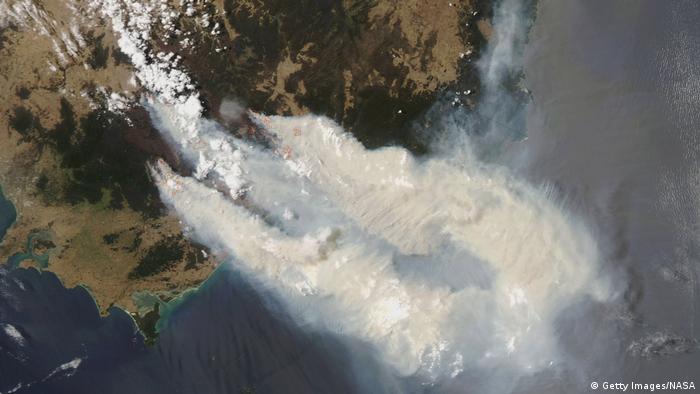
Some of the ash cloud has spread from Australia to South America
Business as usual
Support has been coming from abroad in the form of more firefighters, but strangely some offers of help have allegedly gone unanswered or are still awaiting approval. The government prefers to portray this disaster as business as usual, saying Australia's always had bushfires.
Mucci said he is shocked by the response and applauds the Germans for moving away from coal.
"The German government is leading the way in energy and tackling carbon emissions. We've got a government that doesn't believe in climate change. The coal industry is funding political power. The big polluters are funding the government to have policies that don't admit climate change."
Mining magnate Andrew Forrest pledged AUS$70 million to a recovery package. The mining industry is worth over AUS$148 billion to the economy. But is the country digging its own grave, by clinging to coal? Hawley told me "I have real anxiety about where Australia is headed and what this will mean for future generations."
No comments:
Post a Comment